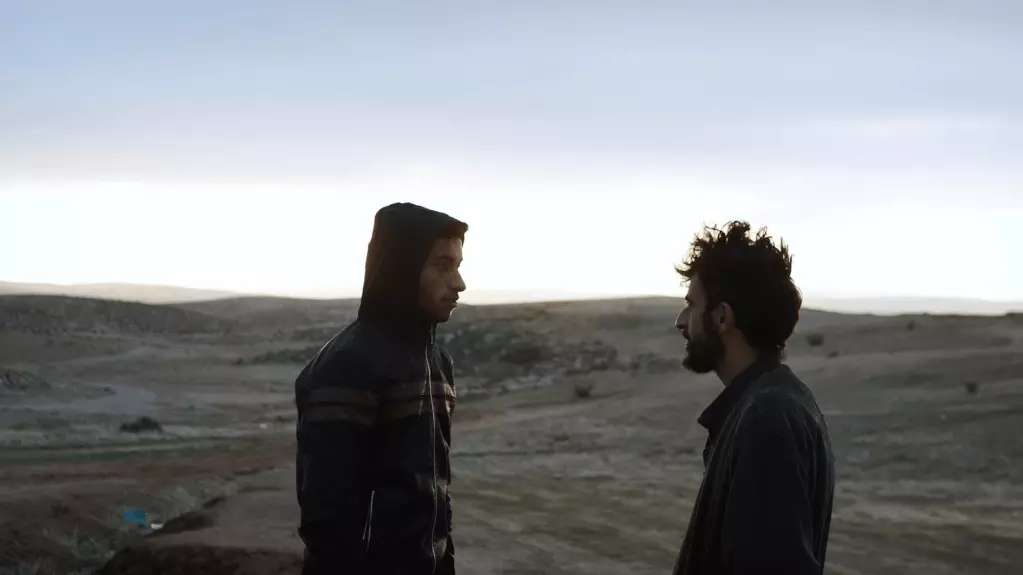The world of cinema frequently serves as a reflection of society’s pressing issues — both historical and contemporary. In particular, recent documentary and narrative releases underline the potent blend of personal stories and larger political narratives that dominate current global discussions. Several recent films, including “No Other Land” and “This Woman,” embody this intersection, illuminating the complexities of human experience against the backdrop of significant socio-political crises.
“No Other Land,” an Academy Award-nominated documentary, brilliantly weaves together the narratives of Palestinian and Israeli filmmakers to shed light on ongoing displacement issues faced by communities in the West Bank. The film presents a stark exploration of the Israeli military’s gradual expulsion of the Masafer Yatta community, home to twenty ancient Palestinian villages — a context that is crucial to understanding not only personal loss but also the political motivations interwoven in these actions.
The film, directed collectively by Basel Adra, Hamdan Ballal, Yuval Abraham, and Rachel Szor, captures five years of personal narratives and political struggle, highlighting a courageous resistance against what many view as a government-sanctioned eviction process. What’s particularly poignant is the collaboration and friendship that emerges between Adra, who documents the injustices faced by his community, and Abraham, who is afforded the freedom to travel and amplify these stories on broader platforms. This partnership showcases hope amidst oppression, suggesting that cross-cultural alliances are possible even in the most divided of landscapes.
As tensions in the region escalate due to the ongoing war between Israel and Hamas, which serves as a backdrop to the film’s release, the narrative of “No Other Land” becomes even more significant. It offers audiences not just documentation of conflict but an urgent call to recognize the human lives affected by political decisions. With a perfect score on Rotten Tomatoes, the film serves as a critical lens through which viewers can empathize with those enduring the repercussions of occupation.
In stark contrast to the harrowing political discussions presented in “No Other Land,” “Love Me,” directed by Sam Zuchero and Andy Zuchero, transports audiences to a future where humanity has become a mere echo of its past. This unconventional love story features Kristen Stewart and Steven Yeun in a tale that transcends time and space, exploring profound themes of technology, identity, and connection long after humanity’s extinction. The film’s use of various animation techniques and live-action intertwines to create a distinct cinematic experience that prompts viewers to reflect on the nature of love amidst isolation.
“Love Me” invites audiences to question the essence of existence. As the characters delve into narratives of the past, they grapple with their identities in a world where human experiences have become relics. The film deftly navigates contemporary issues of digital interaction, suggesting that our reliance on technology can reshape our understanding of human relationships. It cleverly mirrors the emotional journeys that many experience during times of upheaval, making it a relevant and poignant exploration of love in unnerving times.
The release of “This Woman,” directed by feminist activist artist Alan Zhang, presents another layer to the discourse surrounding individual struggle amid societal chaos. Following Beibei, a 35-year-old unemployed woman navigating the malaise of a pandemic-era marriage, the film addresses both personal and collective crises. As Beibei engages in various affairs seeking solace, her story echoes the frustrations many faced during the pandemic, emphasizing the intricate relationship between personal choices and the societal pressures that shape them.
Zhang’s portrayal of Beibei’s journey becomes a canvas for discussing broader issues of gender, identity, and societal expectations. It intricately highlights how personal struggles can often be a microcosm of larger societal dilemmas, urging viewers to consider the convergence of individual narratives with the socio-political landscape. Recognized at various film festivals, the documentary showcases the power of storytelling as a means of understanding and confronting personal and systemic adversities.
The convergence of political discourse and human narratives in contemporary cinema serves as a crucial outlet for reflecting on our world today. Films like “No Other Land,” “Love Me,” and “This Woman” invite audiences into the multifaceted experiences of individuals grappling with displacement, love, and identity amid periods of turmoil. These narratives not only highlight the importance of personal stories within larger political contexts but also urge us to engage with and empathize with the complexities of the human experience in a divided world. As we continue to navigate these dialogues, cinema remains a powerful medium for connection, reflection, and understanding of our shared humanity.

